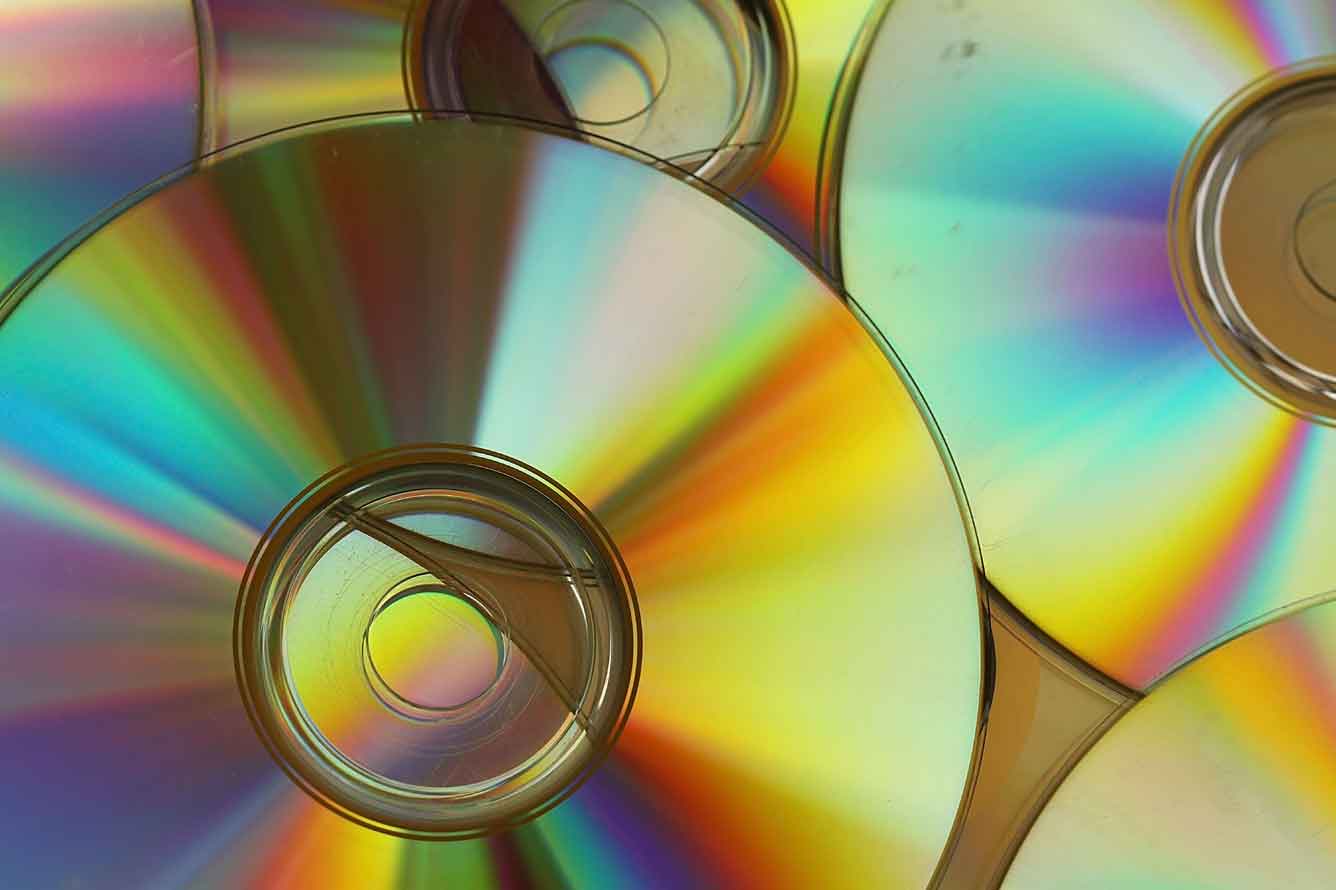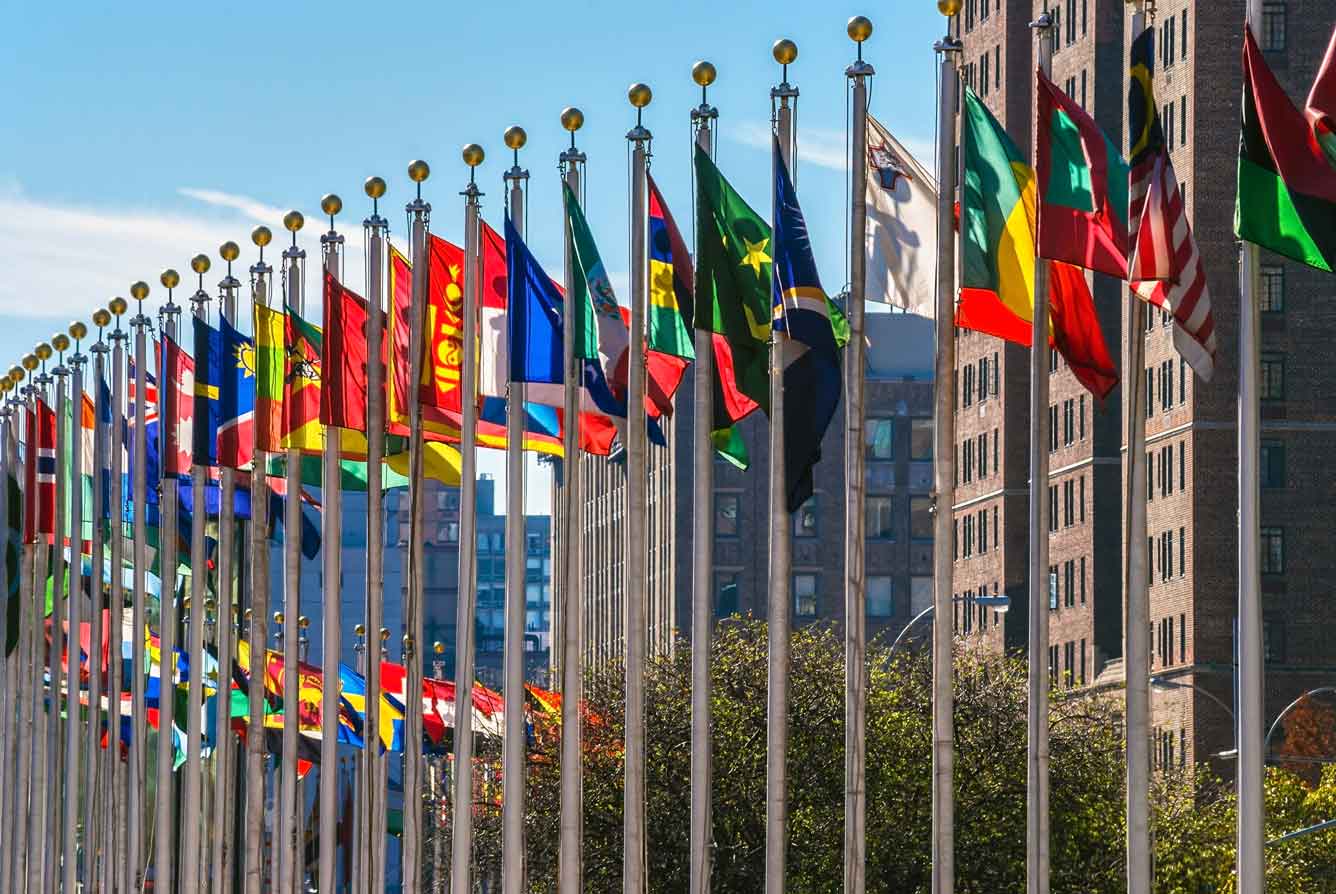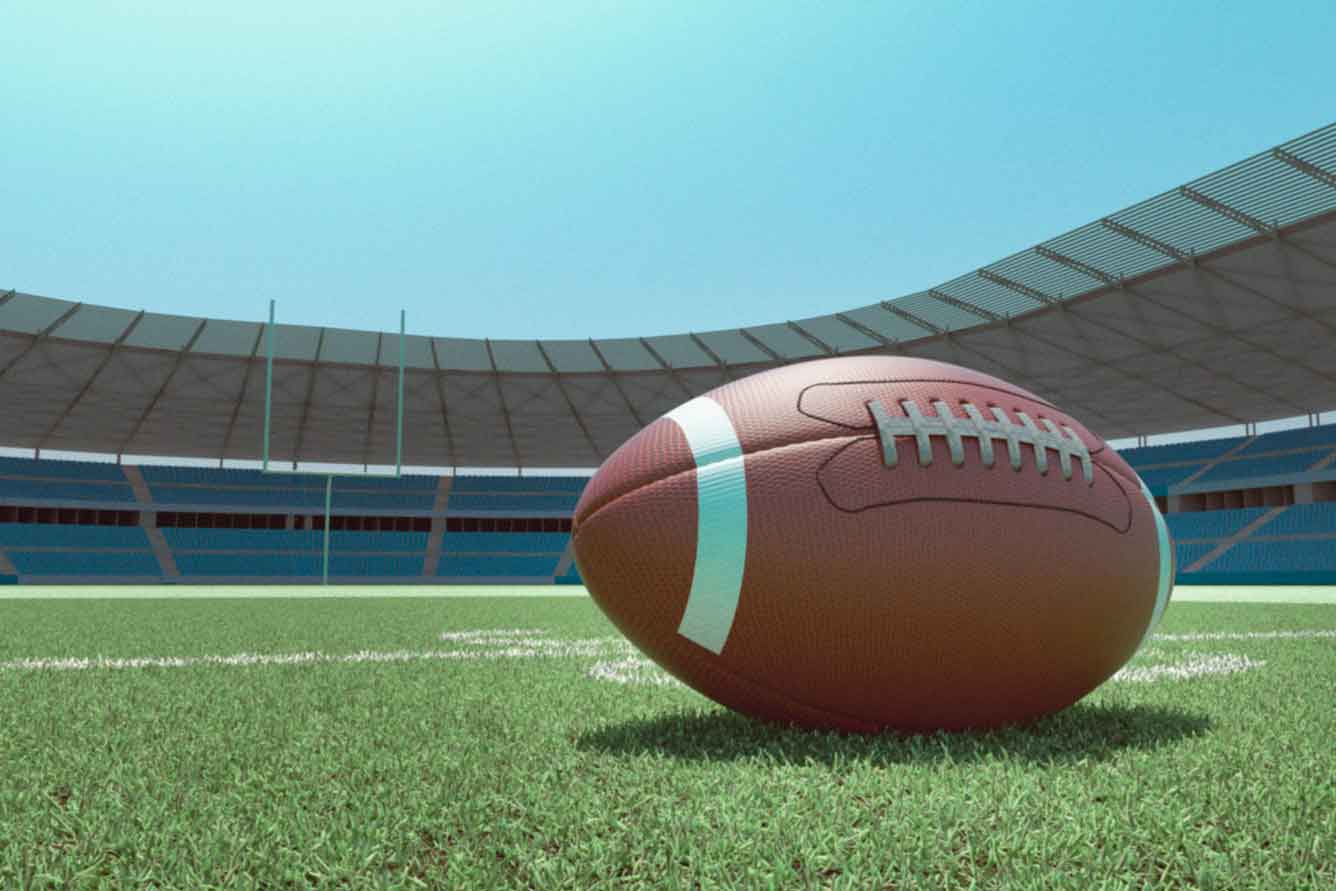Part 1. General acronyms
We're starting an article series on the 100 most important acronyms that are used in the English language.
- Part 1: General acronyms
- Part 2: Business acronyms
- Part 3: Internet slang
- Part 4: Acronyms for technology and medicine
- Part 5: Government and military
- Part 6: Organizations and People
An "acronym" is a word that's made up of the first letters of other words (usually). English speakers use acronyms a lot. You'll read and hear them everywhere – on the Internet, in business, in the government.
The examples below are acronyms that almost all English speakers know and use commonly.
1. "Q&A" (Question and answer)
A "Q&A" is a kind of interview. One person or many people ask questions, and someone answers them.
Save your questions, and we'll have a Q&A at the end of the presentation.
2. "VIP" (Very Important Person)
A VIP is someone who's important. A VIP might be a well-known author at an academic event, a celebrity at a night club, or a wealthy donor at a charity event. Here's something that you might read on a sign hanging near the entrance to a room at a party:
Reserved for VIPs
3. "3D" (3-dimensional)
Something that has height, width, and depth is "3D". Things that are flat are "2D". So a square drawn on a piece of paper is 2D, but a box is 3D.
If someone told you that they saw a recent action movie in a theater, you could ask this:
Did you see it in 3D?
4. "ID" (Identification)
Your "ID" is your identification. That might mean a document that proves who you are, like a passport or driver's license:
Can I see your ID please?
Another kind of "ID" is a name that you create for yourself on a website or computer program.
5. "I.Q." (Intelligence quotient)
"I.Q." is a measurement of how smart someone is. The average I.Q. is 100. If you have an I.Q. greater than 100, it means that you're smarter than average.(Intelligence quotient)
Just because you have a high I.Q. doesn't necessarily mean that you'll be successful in life.
6. "RSVP" (Répondez s'il vous plaît)
Most English speakers know the phrase "RSVP" without knowing that it comes from French. To "RSVP" means to confirm whether you will attend a party. It's common to ask guests to RSVP to a wedding, for example.
Please RSVP by June 8th.
7. "AKA" (Also known as)
Use "AKA" to introduce someone's nickname:
Allow me to introduce my friend Jack Monroe, AKA "Poppa Jack".
You would especially use "AKA" to introduce people like boxers, fighters, and T.V. characters.
8. "DIY" (Do-it-yourself)
A "DIY" project is something that you do at home which people usually buy or hire professionals for. Some examples of DIY projects include:
- Building your own furniture
- Brewing your own beer
- Renovating a room in your house
They're always taking on little DIY projects around the house.
9. "T.G.I.F." (Thank God it's Friday!)
People say and write "T.G.I.F." to celebrate the end of the work week. It means that you're happy that the weekend is about to begin.
10. "R.I.P." (Rest in peace)
"Rest in peace" is something that you can say when someone has died. The acronym "R.I.P." is even more common than saying or writing "Rest in peace". You might see this in the comments under a news story about a celebrity who just passed away.
R.I.P. Prince
11. "BYOB" (Bring your own booze/beverage/beer)
If a party is "BYOB", it means that you're supposed to bring drinks for yourself.(Bring your own booze/beverage/beer)
We're having a dinner party Saturday night starting at 7. It's BYOB, but no need to bring any food.
12. "KIT" (Keep in touch)
You can write "KIT" to someone who you're not going to see again soon. For example, you can write this in a card for a coworker who's leaving to start a new job.(Keep in touch)
We'll miss you! KIT
13. "POV" (Point of view)
"POV" means "Point of view". This phrase has several meanings.
- A person's "POV" can mean their opinion.
- In filmmaking, the "POV" means where the camera is placed.
- In literature, it means who is narrating a story.
Try to think about it from the POV of someone who's trying to run a small business.
14. "M.O." (Modus Operandi)
A person's "MO" is their particular way of doing something. It's a technique or a pattern that's specific to that person. When you talk about someone's "M.O.", you seem kind of suspicious of them.
That's his M.O. – he offers money to businesses that are struggling and then takes them over.
The phrase "modus operandi", which "M.O." is short for, is from Latin.
15. "A.D." (Anno Domini)
The Western calendar system counts years based on when Jesus Christ is thought to have been born. That year is called "0", and every year after that is marked as "A.D."
The Roman Republic was dissolved in the year 1453 A.D.
"A.D." comes from "Anno Domini", which is Latin.
16. "B.C." (Before Christ)
In the Western calendar system, years before year 0 are marked as "B.C."
Experts believe that thet pyramids at Giza were build in about 2500 B.C.
Part 2: Business acronyms
 This series is for people learning English as a second language. We explain some of the most common English acronyms and how to use them.
This series is for people learning English as a second language. We explain some of the most common English acronyms and how to use them.

17. "ASAP" (As soon as possible)
If you want something to be done quickly, as someone to do it "ASAP".
Please send me your response ASAP.
18. "FYI" (For your information)
Use the acronym "FYI" when you want to let someone know about something, but you don't expect any action or response. For example, you might let your coworkers know when you're going to take a day off of work:
FYI I will be out of the office this Friday. I'll be checking email throughout the day.
19. "TBA" (To be announced)
Use "TBA" when you're not ready to announce some information yet.
The sponsorship details are TBA.
20. "TBD" (To be determined)
"TBD" is similar to "TBA", but it's for something that hasn't been decided yet.
Whether we'll be combining the departments or continuing to operate them independently is still TBD.
21. "EOB" (End of business)
When you want something to be done before the end of the work day, ask for it by "EOB":
Please send us your estimates by EOB.
22. "YTD" (Year-to-date)
We use "YTD" to talk about how much of something there has been from the beginning of the year until now.
What are our YTD advertising expenses?
"YTD" is useful for talking about the total amount of things like income, expenses, sales numbers, etc.
23. "ROI" (Return on investment)
When you make a business decision, you hope for a "positive ROI", which means "return on investment". In other words, you hope to make more money than you spend.
Let's figure out which of our initiatives had the highest ROI.
24. "OT" (Overtime)
For some jobs, you get paid extra when you work beyond the normal number of hours. For example, a police officer who works more than 40 hours per week might get paid 50% more for any extra hours.
I'm sorry, but we can't approve any OT this month.
25. "NDA" (Non-disclosure agreement)
An "NDA" is a legal document. It prevents someone from sharing information. A company might ask you to sign an "NDA" before they agree to talk about a secret project.
You'll need to sign the attached NDA before your interview.
26. "B2B/B2C" (Business-to-business/Business-to-consumer)
A "B2B" company is a company that sells things to other businesses, while a "B2C" company sells things directly to individual people.
We're B2B, so we don't spend a lot on advertising.
27. "HR" (Human Resources)
"HR" is the part of a company that deals with things like: - Hiring new employees - Employee pay and benefits - Dealing with problems between employees
My boss was so bad that I eventually went to HR to make a complaint.
28. "PR" (Public relations)
Someone who works in "public relations" tries to influence how the public thinks about a company. They might try to get the media (TV, newspapers, magazines, blogs) to cover the company. Or they might plan projects that will make people think kindly of the company, like donating money to charities.
Someone who works in "public relations" tries to influence how the public thinks about a company. They might try to get the media (TV, newspapers, magazines, blogs) to cover the company. Or they might plan projects that will make people think kindly of the company, like donating money to charities.
Their public relations department needs to do a better job of publicizing the charity work that they do.
29. "CEO" (Chief executive officer)
"CEO" is the top job at a company. The CEO is the person who's in charge of everything.
"CEO" is the top job at a company. The CEO is the person who's in charge of everything.
She reports directly to the CEO.
30. "CFO" (Chief financial officer)
The "CFO" of a company is in charge of the company's finances.
The "CFO" of a company is in charge of the company's finances.
Our CFO is retiring in July and the current VP of Finance is probably going to replace her.31. "CTO" (Chief technology officer)
A company's "CTO" is in charge of its computer systems.
The CTO was forced to resign as a result of the data security breach.
32. "VP" (Vice President)
"VP" is a high position within a company. Traditionally, a "Vice President" was one person whose position was just under the President. These days, though, many companies have a lot of different "VPs". You talk about them like this:
Mr. Takeda is our VP of Manufacturing.
33. "MBA" (Masters of Business Administration)
An "MBA" is a degree that you get when you go to graduate school for business. You might be able to get a good job if you have an MBA from a great school.
An "MBA" is a degree that you get when you go to graduate school for business. You might be able to get a good job if you have an MBA from a great school.
She has an MBA from Duke University.
34. "CPA" (Certified Public Accountant)
A "CPA" is a certification that accountants can get. They have to pass a series of difficult tests to become a CPA.
She's a CPA, right?
A "CPA" is a certification that accountants can get. They have to pass a series of difficult tests to become a CPA.
She's a CPA, right?
Part 3: Internet slang

35. "LOL (Laugh out loud)
You can write "LOL" in a text message, a tweet, a chat room, etc. to react to something funny.
> Yo my mom just said we should go to Disney World. I'm like mom, I'm 24 years old! LOL
36. "LMAO" (Laughing my ass off)
"LMAO" is like "LOL" but you use it when something is really, really funny.
> I just realized I'm wearing two completely different shoes. LMAO!
37. "OMG" (Oh my God)
Write "OMG" when you're surprised by something.
> Marco just told me that he's leaving his wife.
>OMG. Are you serious?
"OMG" is one of the few internet acronyms that people also use in spoken English as well as in writing.
38. "WTF" (What the fuck)
Use "WTF" when you're angry about something or when you come across something that's really confusing.
> Sorry, I can't do it.
> WTF! You promised that you would.
39. "NSFW" (Not safe for work)
When people share images or videos that have nudity or violence, they often label them as "NSFW". That lets people know to be careful before clicking on them.
See what happened when this tourist got too close to a lion (NSFW).
40. "TBH" (To be honest)
When you want to share an opinion that someone might not like, you can add "TBH".
TBH, I think you should work on this a little more before you submit it.
41. "IMHO"! (In my honest opinion)
Use "IMHO" to introduce an opinion that you want to share, which you think that some people might disagree with.
IMHO they're probably going to do even worse this year than last year.
42. "BRB" (Be right back)
Tell someone that you'll "BRB" if you need to leave your computer for a few minutes.
Kate's calling me. BRB.
43. "TTYL" (Talk to you later)
"TTYL" is a way to end an online converation.
> Gotta go.
> OK TTYL
44. "TMI" (Too much information)
When someone tells you details about things like sex, medical issues, or bathroom activities, you can respond with "TMI". It means that you don't want to hear about those things.
> I gotta poop!
> Gross, TMI
45. "IRL" (In real life)
Meeting someone "IRL" means that you meet with them person-to-person rather than on the Internet.
It was cool to finally meet you IRL.
46. "BTW" (By the way)
Use "BTW" to switch the topic of conversation suddenly.
Oh BTW how was Philly?
47. "ATM" (At the moment)
Use "ATM" to write about what's happening right now.
Sorry, can't talk ATM. About to head out.
48. "BFF" (Best friends forever)
Your "BFF" is your best friend, but people often use this acronym in a slightly negative way like this:
What happened? I thought you guys were BFFs.
People use "BFF" in both spoken and written English.
Part 4: Technology and Medicine

Computers and the Internet
49. "P.C." (Personal Computer)
A computer that a person has in their home is a "PC".
I might need to get a new P.C. Mine is kind of old.
This term is not as common as it was in the 1990s and early 2000s, but people still use it.
50. "USB" (Universal serial bus)Most modern computer have a "USB port", which is an area where you can plug in a wire that will connect the computer to things like a keyboard, a memory stick, your phone, and so on.Have you seen a USB cable? I think I left it here.
51. OS" (Operating system)
A computer's "OS" is the main software that it runs. The popular OSes include Windows, Mac, Linux, iOS, and Android.
Which OS are you using?
52. URL" (Uniform resource locator)
A "URL" is the address of a website. It's what you type in at the top of your web browswer.
What's the URL for that shopping site you were telling me about?
Other technology
53. "TV" (Television)You almost certainly know that "TV" is a common acronym for "television".
Can you turn off the TV?
54. "AC" (Air conditioner)An "AC" is a machine that makes the air cooler in a room or a car.It's hot! Turn up the AC!
55. "ATM" (Automated Teller Machine)
"ATM"s are machines that you can get cash from.
I need to stop at an ATM and get some money.
We use the acronym "ATM" both in writing and in spoken English.
56. "CD" (Compact Disk)
"CD"s are round, shiny disks that hold music.
These days I almost never buy CDs. If I like something, I'll stream it.
57. "DVD" (Digital Versatile Disk)
"DVD"s are also round, shiny disks, but they hold movies instead of music. There's a newer format called "Blu-ray" that many people use instead of DVDs, but some people still call Blu-ray disks "DVDs".
I used to own that movie on DVD.
58. UPC" (Universal product code)
UPCs are the "bar codes" that are attached to products that we buy in stores. Cashiers scan the products' UPCs to find out how much they cost.
Where's the UPC on this thing?
59. "VR" (Virtual reality)
"VR" is a new technology that allows you to feel like you're inside of a virtual world.
Have you tried any of those new VR helmets?
Medicine
60. "MD" (Medical doctor)
Someone who's licensed as a doctor is an "MD". Doctors add that to the end of their name:
Janice Lebowski, MD
You can also use "MD" by itself:
Is he an MD or one of these "holistic medicine" practitioners?
61. "OB/GYN" (Obstetrician/Gynecologist)
An OB/GYN is a doctor who specializes in childbirth and women's reproductive issues.
Have you seen an OB/GYN yet?
This acronym is made up of two different words, but it's not common to just call someone an "OB" or a "GYN". If you want to specifically talk about a "gynecologist" or an "obstetrician", use the whole word.
62. "EMT" (Emergency medical technician)
When you call an ambulance, the people who show up are "EMT"s. They are not doctors, but they're trained to respond to a variety of emergency medical situations.
The EMTs arrived a few minutes after I called.
You might also hear the acronym "EMS", which stands for "Emergency medical service".
63. "CPR" (Cardiopulmonary resuscitation)
"CPR" is a technique that you can use if someone's heart has stopped and they've stopped breathing. The technique involves pressing on someone's chest several times, and then breathing into their mouth.
I did CPR training once when I was training to be a lifeguard.
64. "STD" (Sexually transmitted disease)
An "STD" is a disease that you can get from having sex.
It's important to get tested for STDs if you're sexually active.
65. "HIV/AIDS" (Human Immunodeficiency Virus / Acquired Immunodeficiency Disorder)
AIDS is an STD that reduces your body's ability to fight off other diseases and infections. It first started to spread in the late 1970s and early 1980s.
HIV is a condition that precedes AIDS. A person who contracts HIV is likely to get AIDS if they do not receive treatment.
I'm participating in a fundraiser to raise money for HIV and AIDS research.
66. "ADD" (Attention Deficit Disorder)
"ADD" is a condition that prevents a person from being able to focus. It's sometimes diagnosed for children who are not able to pay attention in school.
People sometimes use this term to talk about being easily distracted in general.
Sorry, I have ADD today.
67. "OCD" (Obsessive-Compulsive Disorder)
"OCD" is a mental condition that causes people to perform some action again and again. For example, some people with OCD will wash their hands many, many times throughout the day, and perhaps even many times in a row.
Like "ADD", "OCD" has made it into everyday English as well as being a medical diagnosis. You can say that someone is "OCD" if they seem to be paying too much attention to details that don't seem important.
He's kind of OCD when it comes to food.
Part 5: Government and military

Countries and Governments
68. "U.S.A./The U.S." (The United States of America)
People often refer to the United States of America as "The U.S." or "U.S.A." Between the two, "The U.S." is more common.
I was born in the U.S.
Note that you use "the" in front of "U.S." but not "U.S.A."
69. "The UK" (The United Kingdom)
The "UK" is the country made up of England, Scotland, Wales, and Northern Ireland.
I studied abroad in the UK for a semester in college.
70. "The EU" (The European Union)
The "EU" is an organization of European countries that was formed in the early 1990s.
A majority of the countries in the EU use the Euro as their official currency.
71. "The UN" (The United Nations)
The "UN" is an international organization that includes almost all of the countries in the world.
She got a chance to speak at the UN about her humanitarian work.
Government Agencies
72. "The FBI" (The Federal Bureau of Investigation)
The FBI is a law enforcement agency in the United States. They do things like prevent terrorist attacks within the U.S. and investigate big crimes like large-scale murders, bank robberies, and organizations that sell drugs.
When someone joins the FBI they have to go through a really thorough background check.
73. "The CIA" (The Central Intelligence Agency)
The "CIA" is an agency of the U.S. government which collects information about other countries, terrorist suspects, and so on.
I was watching this movie about a CIA spy who has to go undercover to prevent a missile attack on the UN.
74. "The KGB" (The Komitet Gosudarstvennoy Bezopasnosti)
The "KGB" was a security and intelligence agency in the Soviet Union. Most English speakers know the name "KGB", although not many people know what it stands for.
Did you know that he's a former KGB officer?
75. "NASA" (National Aeronautics and Space Administration)
"NASA" is the organization in the United States that's responsible for missions in outer space.
My dream when I was a kid was to become an engineer at NASA.
76. "The DMV" (The Department of Motor Vehicles)
In the U.S., each state has a "DMV". The DMV is where you would go to get a driver's license or a license plate for your car. DMV's are widely disliked in the U.S. because the service there is often slow and unfriendly.
I dread having to go to the DMV to renew my license.
Military
77. "WWII" (World War Two)
In writing, the second world war is often referred to as "WWII". When we talk about it out loud, we usually say "World War Two".
Both of our grandfathers fought in WWII.
78. "POW" (Prisoner of war)
A soldier who is captured and held by another military force is a "POW".
He was held in a POW camp for over two years.
79. "HQ" (Headquarters)
"Headquarters" is the main location for an organization. It's where things are planned.
We have new orders from HQ.
People also use "HQ" in a lot of non-military situations as well. For example, you can call a company's main office "HQ".
80. "ETA" (Estimated time of arrival)
When you're traveling somewhere, the "ETA" is when you think you will arrive at your destination. In addition to the military, you can often hear "ETA" used on airplane flights:
Our ETA in Chicago is approximately 11:35 AM.
81. "MIA" (Missing in action)
A soldier who is lost is "MIA".
You can also use this term to talk about a friend or coworker who you haven't heard from in a long time.
Stefan has been MIA for the last few weeks.
82. "DOA" (Dead on arrival)
A person who has already died before help arrived is "DOA".
Police officers, EMTs, doctors, and so on also use this term.
We arrived on the scene at 9:05 PM. The victims were DOA.
Part 6: Organizations and People

Note that this list focuses on American English, so these are acronyms that are well-known in the U.S. There may be other acronyms that are more commonly used in Britain, Australia, and other English-speaking countries.
Organizations
83. "AA" (Alcoholics Anonymous)
Alcoholics Anonymous is an organization that helps people to deal with alcohol addiction. It's commonly known as "AA".
84. "PETA" (People for the Ethical Treatment of Animals)
PETA is an organization that supports animal rights. They carry out campaigns to prevent animal cruelty, to stop people from wearing fur coats, to promote vegetarianism, and so on.
85. "The NRA" (The National Rifle Association)
The NRA is an organization in the United States that fights for the rights of gun owners. People who join the NRA are enthusiastic about owning guns for self-protection, hunting, and other reasons.
86. "The GOP" (The Grand Old Party)
The Republican (conservative) party in the United States is sometimes called "The GOP" in news broadcasts and political discussions.
Companies and brands
87. "IBM"weet This! (International Business Machines)
IBM was one of the biggest computer brands of the 1980s. Since then, the company has continued to exist and now does technology consulting. They also have an artificial intelligence program called "Watson".
88. "UPS" (United Parcel Service)
UPS is a company that delivers packages. It's not the national postal service, but a private company that does package deliveries.
89. "GE" (General Electric)
GE is a big company whose main business historically was in creating electrical appliances like refrigerators, washing machines, and lights. They now have businesses in many industries. This company originated with the inventor Thomas Edison.
90. "GM" (General Motors)
GM is an American car company. They own several car brands including Chevrolet (Chevy), Cadillac, and Buick. Sometimes people call it "General Motors" but "GM" is more common.
91. "BMW" (Bayerische Motoren Werke)
BMW is a luxury car company from Germany. English speakers almost always call the company "BMW" rather than its original German name, which most people don't know.
92. "ABC/NBC/CBS" (American Broadcasting Company / National Broadcasting Company / Columbia Broadcasting System)
ABC, NBC, and CBS are three of the biggest television networks in the U.S. They have been around since the early days of television.
93. "HBO/MTV/ESPN" (Home Box Office / Music Television / Entertainment and Sports Programming Network)
HBO, MTV, and ESPN are just three of many cable television networks. Cable networks are not free over the air. You have to pay for a subscription to access them.
HBO plays movies as well as "premium" TV series like Game of Thrones and Sex and the City. MTV used to play lots of music videos in its early days but now has a variety of shows for young people. ESPN is the most popular cable sports network.
There are many other cable networks in the U.S. that are also known by acronyms including AMC, TBS, TNT, QVC, VH1, TLC, and A&E.
94. "The BBC" (British Broadcasting Corporation)
The BBC is a television network from the UK. It's funded publicly. Outside of the UK, the BBC is especially well-known for its news broadcasts.
Sports Organizations
95. "The NBA" (National Basketball Association)
The NBA is America's professional basketball league.
96. "The NFL" (National Football League)
The NFL is a league for American Football. It's the most popular sport in the U.S.
97. "MLB" (Major League Baseball)
MLB is a professional baseball organization. It's made up of two leagues: the American League and the National League.
The acronym "MLB" is often used as an adjective rather than a noun:
He's undoubtedly one of the greatest players in MLB history.
98. "The UFC" (The Ultimate Fighting Challenge)
The UFC is a rather new sports organization. It features mixed martial arts fighters who fight each other in a cage.
People
99. "JFK" (John F. Kennedy)
John F. Kennedy was the 35th president of the United States, from 1961 to 1963 when he was assassinated. It's very common to use his initials "JFK" when talking about him.
100. "MLK" (Martin Luther King)
Martin Luther King, Jr. was a famous Civil Rights leader in the United States in the 1960s. He's sometimes referred to as "MLK".
101. "MJ" (Michael Jackson)
The singer Michael Jackson is so famous that he's often simply known as "MJ".
